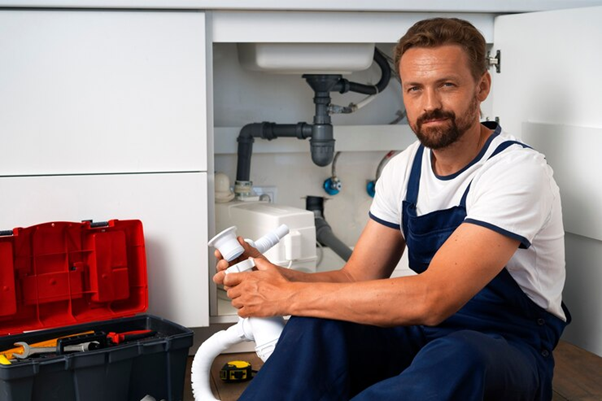Regular maintenance prevents costly repairs and prolongs the lifespan of household systems. Like other home systems, your plumbing and septic tank system should be regularly inspected. This maintenance is crucial for ensuring the efficient functioning of your household’s water and waste management. So, proper maintenance is essential for clean water flow and a healthy septic system. It also ensures that your home remains comfortable and your systems function optimally for years.
Let’s discuss easy maintenance tips for plumbing systems and septic tanks.
Maintenance Tips for Plumbing System
Regular Pipe Inspections to Prevent Costly Plumbing Repairs
Regular pipe inspections are crucial for maintaining the health of your pipes and identifying potential issues before they escalate into more significant issues. During an inspection, a professional plumber may thoroughly inspect all visible piping and accessible areas, including crawl spaces, where potential issues may be hidden.
They also check pressure levels in all water lines and verify that all connections are tight. This prevents potential leaks in the future, which can damage both your pipes and other parts of your home, reducing the need for costly plumbing repair.
Check for Leaks
You should regularly inspect your home for leaks. Small leaks significantly reduce wastewater and increase water bills. A leaky faucet can result in daily water waste of up to eight gallons. Conversely, a running toilet can consume up to 200 gallons of water daily. Small leaks in appliances like garbage disposals, refrigerators, dishwashers, water heaters, and washing machines can lead to costly damage and high repair costs.
Furthermore, low water pressure and abrupt rise in water usage are signs of concealed leaks. If you suspect a leak in your home but cannot locate it, it’s advisable to seek the services of a plumber. Undetected leaks can cause structural damage and draw pests.
Flush Your Water Heater
Mineral sediments can gather in the bottom, so you should flush your water heater once a year. Doing so can significantly prolong its lifespan. If it requires a thorough flush, it’ll start to make banging sounds. The water surges through the thick silt layer on the tank’s bottom. If not flushed regularly, sediment buildup can lead to the tank rusting out.
In addition to flushing your water heater annually, you should replace the anode rod every five years. Proper care can help your water heater last a long time.
Maintenance Tips for Septic Tanks
Pump Your Septic Tank Regularly.
You may think that hiring a septic tank pumping specialist to pump your septic tank regularly might be very expensive. If sludge and scum buildup caused your septic tank to fail, it would cost a fortune.
Fortunately, hiring a septic tank specialist for three-year solid waste pumping is significantly cheaper than installing a new tank, which can cost thousands of dollars. Your septic service provider will thoroughly examine your septic tank system to detect leaks or damage. Keep a record of regular cleaning and inspections. It may be helpful when issues arise or when you sell your home.
Use Water Efficiently
The daily indoor water use in a single-family home can be up to 70 gallons per individual. A single running or leaking toilet may use up to 200 gallons of water daily. Every drop of water a home sends down its pipes ends up in its septic system. The more water a household conserves, the less water flows into the septic system. Efficient water use enhances septic system performance and lowers the risk of malfunctions.
The EPA’s Water Sense program offers numerous simple methods to conserve water and promote water-efficient products. It includes:
- High-efficiency toilets
- Faucet aerators and high-efficiency showerheads.
- Washing machines
Protect Your Drain Field
Proper maintenance of your drain field begins with closely monitoring water consumption and what enters your septic system. You should never park or drive across your drain field. To prevent water pollution, make sure that gutters and sump pumps empty water far from the drain field. Avoid planting trees and shrubs near the drain field since their roots may obstruct pipes.

